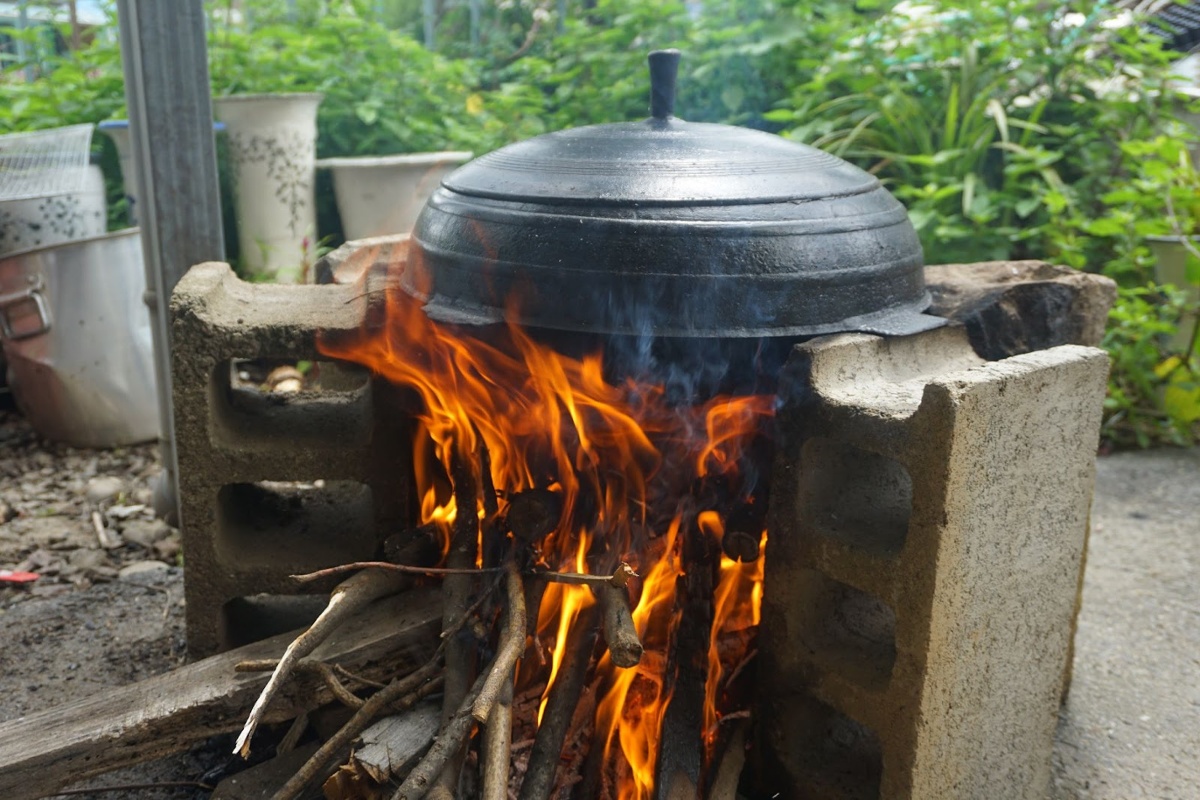In many countries around the world, households burn firewood or biomass to fulfil their cooking and heating needs. Burning such fuels for cooking emits high levels of carbon dioxide (CO2) and other harmful emissions, causing many health problems. It also contributes to unsustainable wood harvesting, causing deforestation and reducing carbon uptake by forests.

Health impacts of cooking with open fire
According to the World Health Organization, around 2.4 billion people worldwide (around a third of the global population) cook using open fires or inefficient stoves fueled by kerosene, biomass (wood, animal dung, and crop waste), and coal, which generates harmful household air pollution.
Burning solid fuels such as wood and charcoal release carbon dioxide, carbon monoxide, methane and black carbon. Black carbon is a small, dark particle that is released as a result of the incomplete combustion of solid fuels. Although black carbon is a particle rather than a greenhouse gas, the World Bank estimates it is the second largest contributor to environmental harm after CO2.

Households are exposed to toxins that cause respiratory diseases. Indoor air pollution was responsible for 3.2 million deaths per year in 2020, including over 237,000 deaths of children under the age of 5.
According to United Nations data, women who typically do the cooking frequently visit local health centers suffering from respiratory diseases due to inhaling smoke.
The highest health costs associated with the use of polluting fuels and technologies in households are borne by women and children who are often in charge of household tasks like cooking and collecting firewood.
Read more: Breathe easy: How trees are nature's air-cleaning machines
Women and children spend a lot of time gathering fuel, which raises the risk of physical injuries and interferes with other useful tasks like education. They are also at risk of harm while obtaining fuel in less safe locations.
Energy-efficient cookstoves vs inefficient stoves
Energy-efficient cookstoves reduce the amount of wood used for fuel, decreasing deforestation and indoor air pollution. Wood and charcoal use can be reduced as a result of these stoves, and many of the current more advanced efficient cookstoves have been shown to reduce fuel up to 66%.
They also provide cleaner, more complete combustion, which can result in fewer CO2 and black carbon emissions. The most advanced energy-efficient and low-emission cookstoves can reduce black carbon emissions by between 50% and 90%.
Daily fuel wood use can be reduced from 15–20 kilograms to 2–3 kilograms. The reduction in wood use can effectively reduce this source of deforestation, allowing afforestation or conservation projects to be more effective.
Each energy-efficient cookstove reduces CO2 emissions by 2.85 tonnes annually compared to traditional open-fire cooking.
The fuel in improved cookstoves is burned more efficiently, releasing reduced amounts of CO2 into the atmosphere. Also, improved efficiency means a reduction in the number of trees removed from forests for cooking fuel. In addition, it saves households time in collecting firewood and increases household income.
Energy-efficient cookstoves therefore offer many health, community, and environmental benefits. By using energy-efficient cookstoves, verified carbon credits are also created, which can then be purchased by companies seeking to offset their carbon emissions and reach net zero.
DGB Group's energy-efficient cookstove projects
DGB Group is developing and managing two different energy-efficient cookstove projects: the Sawa Cookstove Project in Cameroon and the Hongera Energy Efficient Cookstove Project in Kenya.
Both involve the manufacturing and distribution of energy-efficient, locally-manufactured and sustainably-produced cookstoves to individuals and communities. DGB manufactures and distributes 150,000 efficient cookstoves to people in multiple sites across Mount Kenya and the Aberdare regions in Kenya. In Cameroon, DGB also distributes 150,000 efficient cookstoves to encourage local populations to use this efficient way for heating and cooking in Cameroon's Central Region.
Read more: Igniting impact: scaling up the Kenya cookstoves project
Together, these projects are expected to create over 4.9 million credits over their lifetime and positively impact 300,000 households.
Our stoves are changing lives, helping the environment, and improving community health. With your investment, we can scale these positive impacts and ensure the projects' long-term tangible benefits. The verified carbon credits created by these projects also help you offset your carbon footprint and become nature postive.
Become nature positive with DGB


